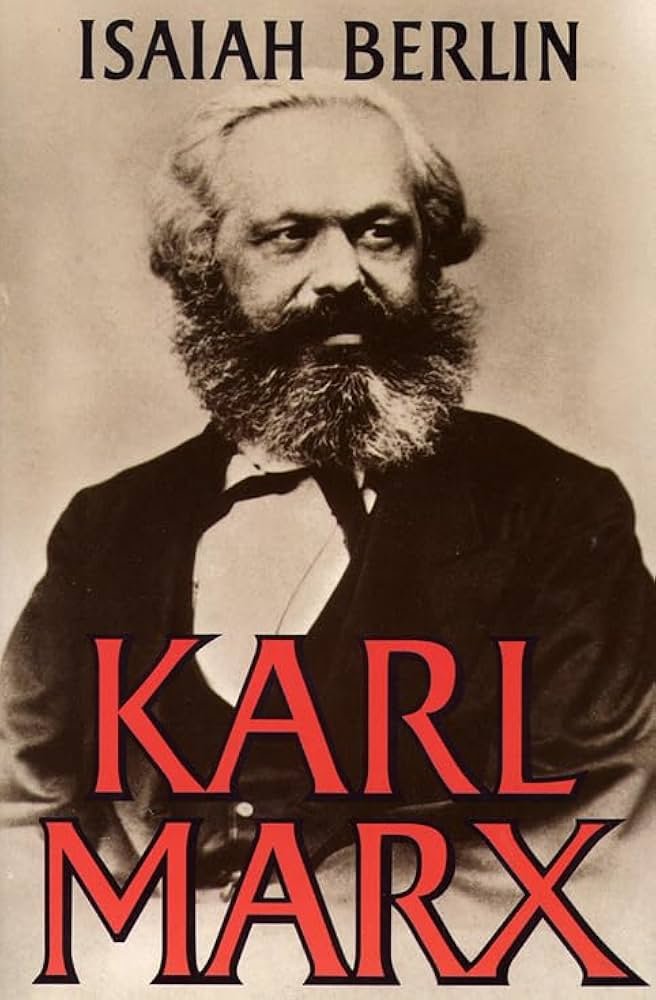#books
Karl Marx,
by Isiah Berlin.
The book offers an insightful and critical examination of Karl Marx’s life, ideas, and intellectual legacy.
Berlin’s analysis provides a clear, balanced view of Marx as both a revolutionary thinker and a controversial figure.
1. Marx’s Vision of Human History:
Marx views history as a Process of Progress and Struggle.
Marx viewed history as a dynamic process driven by conflict and development. Marx saw societal progress as occurring through the struggles between different economic classes. He believed these conflicts would ultimately lead to the resolution of class antagonisms, culminating in a classless, communist society.
2. Marx’s Materialist Conception of History:
One of Marx’s foundational ideas is that material conditions, particularly the forces and relations of production, are the primary determinants of societal change.
For Marx, the economic base (material conditions) shapes the superstructure (laws, politics, and culture). This materialist view of history contrasts with idealist philosophies that place ideas and consciousness at the forefront of societal change.
3. The Dialectical Process of Social Change:
Berlin explores Marx’s adoption of dialectical reasoning from Hegel, which posits that social change occurs through the conflict of opposing forces.
Marx reinterpreted Hegel’s dialectic to focus on material conditions, proposing that contradictions within capitalism, such as the conflict between labor and capital, would lead to revolutionary change and the development of a new social order.
4. The Concept of Alienation in a Capitalist Society:
Berlin highlights Marx’s critique of how capitalism alienates workers from their labour, the products they create, and their human essence.
Marx argued that under capitalism, workers are reduced to mere instruments of production, and the alienation they experience stems from their inability to fully realize themselves through their labour.
5. Capitalism as a Transitory Economic System:
Marx saw capitalism not as a permanent system but as a necessary stage in historical development. While capitalism unleashed unprecedented productive forces and technological advances, it also created deep social inequalities and contradictions. Marx predicted that these internal contradictions would eventually lead to capitalism’s collapse and the rise of socialism.
6. Marx’s Revolutionary Optimism:
Marx’s belief in the inevitability of revolution and the eventual triumph of the working class is a key point in Berlin’s analysis.
Marx believed that the proletariat, once class-conscious and united, would overthrow the capitalist system and establish a socialist society. Berlin presents this revolutionary optimism as a central driving force behind Marx’s political theory.
7. The Enduring Influence of Marx’s Ideas:
Marx’s ideas have had a profound and lasting influence on political thought, even beyond Marxist movements. Marx’s critique of capitalism, his theory of historical materialism, and his revolutionary ideas have shaped debates on economics, politics, and social justice for generations, making him one of the most influential thinkers in modern history.
By examining Marx’s materialist conception of history, his theory of alienation, and his belief in the revolutionary potential of the working class, Berlin offers a clear understanding of why Marx’s ideas continue to resonate in modern political and economic discourse.

